1
Your New Adventure
Its a fairly widespread assumption, even today, that ADD is something you grow out of. However, 4.4 percent of adults in the United States have ADD. Thats 8 million people! (Kessler et al. 2006). Approximately 50 percent of children retain their ADD symptoms in adulthood (Wilens 2004). Adults with ADD are less likely to attend college than people without ADD (Biederman et al. 2006). By thinking about or enrolling in college, youre already ahead of the curve! In this chapter, you will learn about the challenges that college students with ADD face. Youll also learn what adult ADD looks like, and how to find a college that best suits you.
How ADD Alters the College Experience
People with ADD may be successful in high school, but many find they have difficulties in college. There are a few reasons for this. First, students have a lot more unstructured time in collegesometimes two or maybe even three hours between classes. You dont have someone helping you to adhere to a daily scheduleyour mother wont be telling you that you have to finish your schoolwork before you can go out with your friends. It is up to you to determine how to structure your time.
Second, the atmosphere of college is more competitive than it is in high school. If you were at the top of your graduating class in high school, you are now in classes with a bunch of people who were also at the top of their graduating class. In addition, some professors grade on a curve, which means they grade you based on how your performance compares to that of the other students in the class, which can create a competitive atmosphere. Since people who have ADD are more prone to frustration and self-doubt, this can throw you for a loop. However, there is also a positive side to the competition: having all these motivated people around you can make your classes and friendships much more interesting.
Students with ADD may also have difficulties adapting to college due to lower self-esteem and the feeling that they have fewer social skills than non-ADD students (Shaw-Zirt et al. 2005). You also may not have the daily face-to-face access to your friends and family members who would usually help you stay focused or cheer you on when you get stuck or frustrated. But one of the great things about college is that you can form a new support system and still keep your support system at home.
Risks of Young Adults with ADD
Certain behaviors and issues come up more frequently when you are a young adult with ADD. The ADD brain craves excitement and novelty, and some of the behaviors that go along with filling that need can be detrimental to your physical health and general well-being. Young adults with ADD are more likely than others to experience the following:
- Alcohol, tobacco, and drug abuse
- Depression, anxiety, and suicide
- Lack of friends
- Debt
- Auto accidents
- Unplanned pregnancies and sexually transmitted diseases
- Dropping out of college
- Unemployment or lower income than that of peers
- Legal problems
The above list may strike you as pessimistic or over the top, but I bring up these issues because your awareness of these risks can help prevent these things from happening to you.
Symptoms and Causes of Adult ADD
You may have been diagnosed with ADD when you were a child. Your parents may have had you evaluated for ADD because you had difficulty staying in your seat, didnt follow directions, often injured yourself doing daredevil stunts, or werent working to your potential in school. You may have been prescribed medication that you still take today.
When you have ADD as an adult, it looks different from the ADD you had when you were a child. Your brain has matured since you were a child, but it does not lose its ADD-ness. You may just be less hyperactive now that you are older. Instead of getting out of your seat in class, you may feel a sense of internal restlessness. Instead of climbing on the furniture at home, you may have a strong need to engage in outdoor activities. Other signs of adult ADD include:
- Hyperfocusing on activities you enjoy
- Focusing too little on assigned activities
- Having difficulty with organization
- Interrupting others
- Blurting out an idea because youre afraid that if you dont say it right away youll forget it
- Having difficulty with coordination; clumsiness
- Tending to overdo
- Feeling like you dont fit in socially
- Feeling like everyone else knows some social rules that you dont know
Positives of ADD
There are many positives to having ADD. Studies have shown that people with ADD can be more creative than non-ADD people, although they have difficulties with practicality (Abraham et al. 2006). People with ADD are versatile and can switch easily from task to task. They generally have a good sense of humor and are quick witted. People with ADD can have a strong sense of justice and be very active and effective when involved in social causes. All of these are positive characteristics to take with you to college. And the best part is that they are already built in!
Causes of ADD
You may have heard people say that ADD doesnt exist, that it is really just laziness or a result of watching too much television. You may have even had people tell you that if you had been disciplined more as a child you wouldnt have these problems. These statements are simply not true. People with ADD have differences in brain structure. The size of the ADD brains cerebellar lobes is different from that of people without ADD (Mackie et al. 2007). ADD is also highly genetic, with a heritability rate of 75 percent (Rietveld et al. 2004). This means that there is a 75 percent chance that your ADD is caused by genetics.
ADD affects the frontal lobes of the brain. These lobes contain the executive functions, which perform tasks like those of a corporate executivetransmitting information, planning ahead, learning from errors, keeping emotions at an even keel, determining the length of time for a task, creating motivation, and knowing the appropriate thing to say. When you have ADD, impairment in these areas can result in difficulty retaining information, lateness for appointments, repetition of the same mistakes, mood swings, difficulty understanding social cues or rules, and difficulty making yourself follow through with tasks.
In high school, your parents may have motivated you through positive encouragement and negative consequences. Now it is up to you to motivate yourself. One of the issues of ADD is that its not so much a problem with attention, but a problem with motivation. It is difficult for your brain to motivate itself to start or stop a task. That explains why it is difficult for you to focus on reading an assigned book but so easy for you to hyperfocus on playing video games. Once your brain gets motivated, it is really motivated; it can be difficult for you to quit something once you are on a roll.

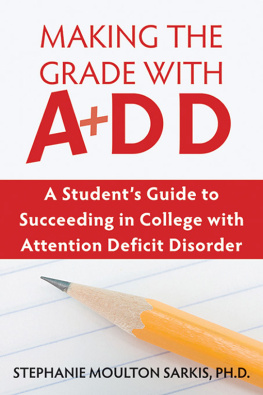
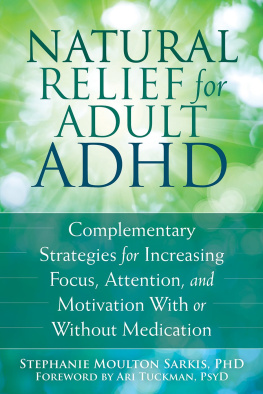
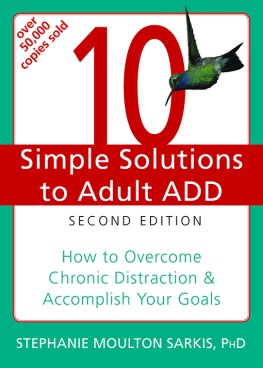
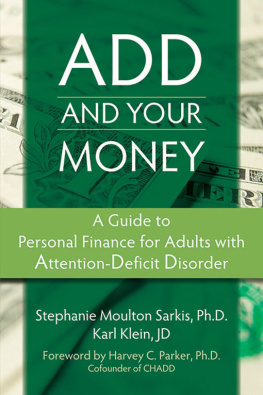
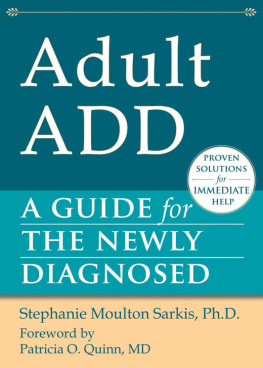

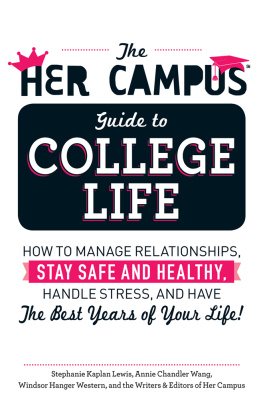
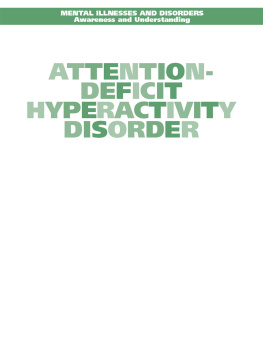
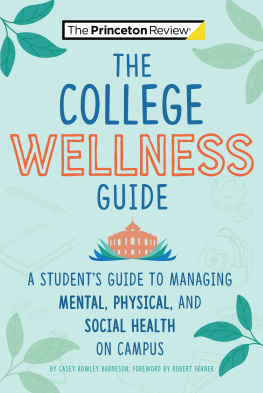
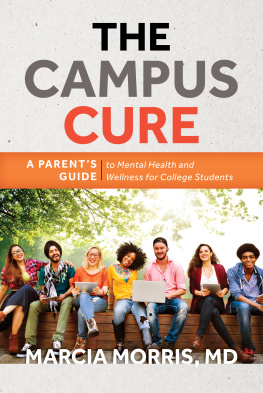
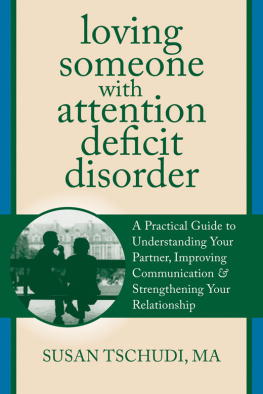
 Stephanie Moulton Sarkis, Ph.D., is a national certified counselor and licensed mental health counselor in Gainesville, Florida who specializes in ADD counseling and coaching. She is also the director of assessments and evaluations at Sarkis Family Psychiatry and Sarkis Clinical Trials and an assistant adjunct professor at the University of Florida. In 2001, Dr. Sarkis won an American Psychological Association Outstanding Dissertation Award for her research on ADD, brain function, and comorbid disorders. She is the author of 10 Simple Solutions to Adult ADD and has been featured on national and regional television and radio, including ABC News, Fox News, and CNN. Find Dr. Sarkis online at www.stephaniesarkis.com.
Stephanie Moulton Sarkis, Ph.D., is a national certified counselor and licensed mental health counselor in Gainesville, Florida who specializes in ADD counseling and coaching. She is also the director of assessments and evaluations at Sarkis Family Psychiatry and Sarkis Clinical Trials and an assistant adjunct professor at the University of Florida. In 2001, Dr. Sarkis won an American Psychological Association Outstanding Dissertation Award for her research on ADD, brain function, and comorbid disorders. She is the author of 10 Simple Solutions to Adult ADD and has been featured on national and regional television and radio, including ABC News, Fox News, and CNN. Find Dr. Sarkis online at www.stephaniesarkis.com.